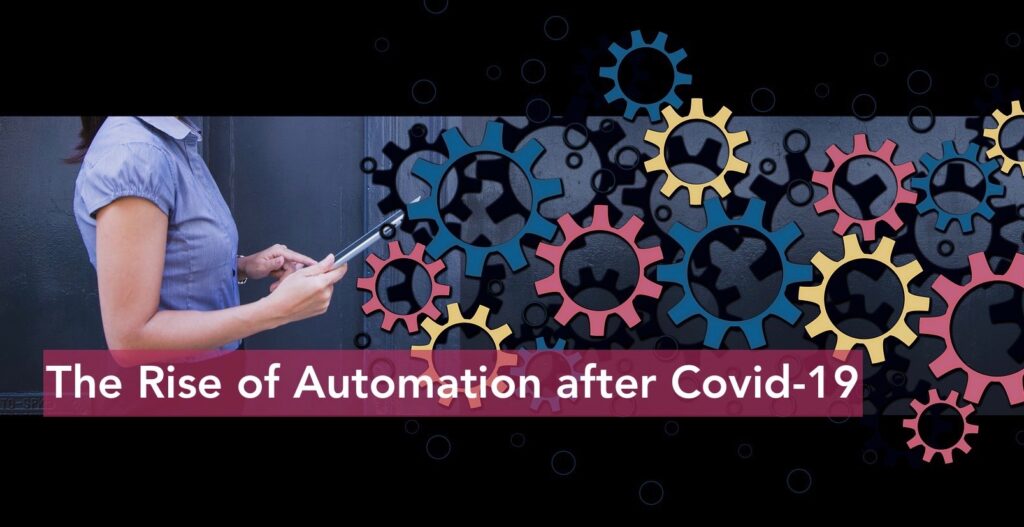The business world has been preparing for increasing use of automation for decades now. As technology advances at a rate unseen in any other century, the potential to automate processes and even entire roles, offers an opportunity for businesses to cut costs and save time.
While the Covid-19 crisis has stopped many businesses present and future plans in their tracks, the one thing that hasn’t been negatively affected is automation planning. In fact, with the need for social distancing and hygiene, and the prospect of a recession on the horizon, many businesses are bringing their automation plans forward.
Pre-pandemic, the Office for National Statistics estimated that around 1.5m British jobs were at risk from automation. This number is likely to steeply increase post-pandemic, particularly in sectors such as retail, where it is expected that many stores will only exist online in the future. Oxford University had already predicted that by 2035 it would be possible for restaurants, retail and recreation sectors to automate between 60-90% of all jobs. Given that these sectors have been some of the hardest hit by the pandemic, we can expect this automation to take place much sooner.
Gabby Hinsliff in The Guardian reports that “What has saved many jobs until now is that new technology tends to be expensive and disruptive, annoying customers. But disruption is the new norm, and if lockdown has intensified a craving for human contact it’s also left both businesses and customers strapped for cash.”
The business world has learnt that most of its ‘essential’ activities can take place remotely; if not as effectively, then at a significant cost saving. Adding this new knowledge to the possible need for social distancing to become semi-permanent, and the need for businesses to recoup losses incurred during the lockdown period, it is easy to see why automation will be an attractive prospect for some. As Hinsliff points out, the world is already so disrupted that adding extra short-term disruption while businesses transfer over to automated processes will be hardly noticeable. Indeed for some businesses that are not trading at all during this period, the disruption will be invisible to customers, as the processes can be completed prior to reopening.
Unfortunately it is often the lowest paid workers whose roles are ripe for automation. Businesses will have tough decisions to make around the morality of making some of their most vulnerable workers redundant with a potential recession looming, and the practicality of ensuring that their business can survive for the benefit of the rest of the workforce.
If you need help and advice with navigating your business through the Covid-19 pandemic, contact one of our advisors today.




